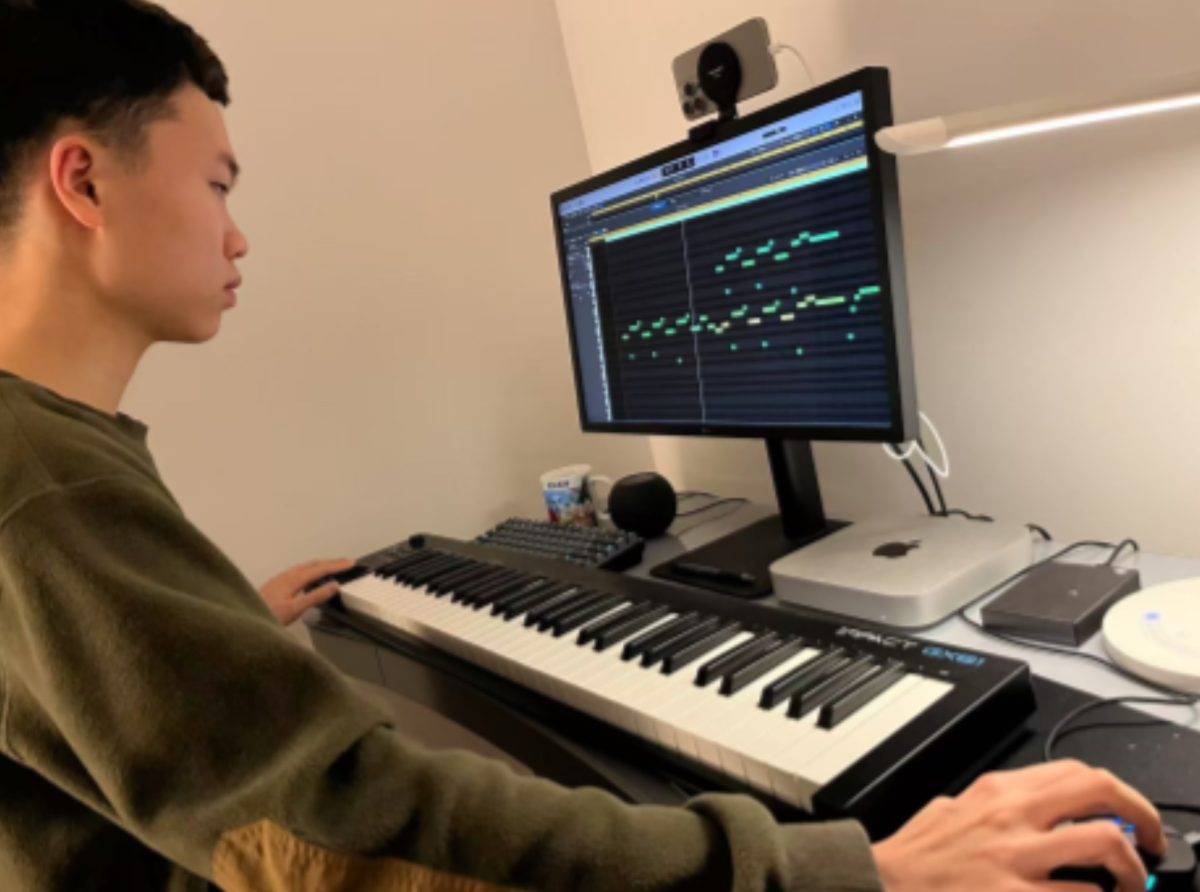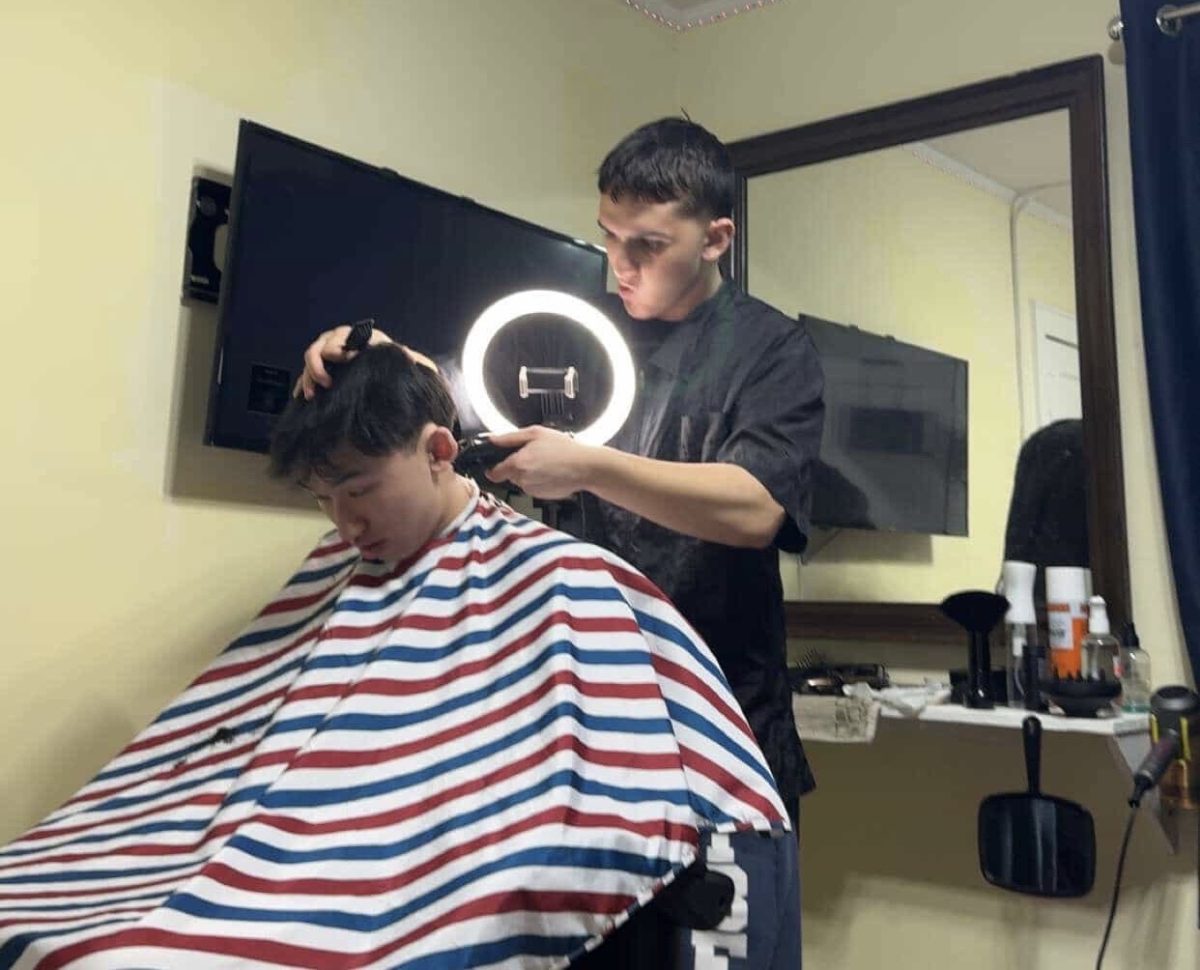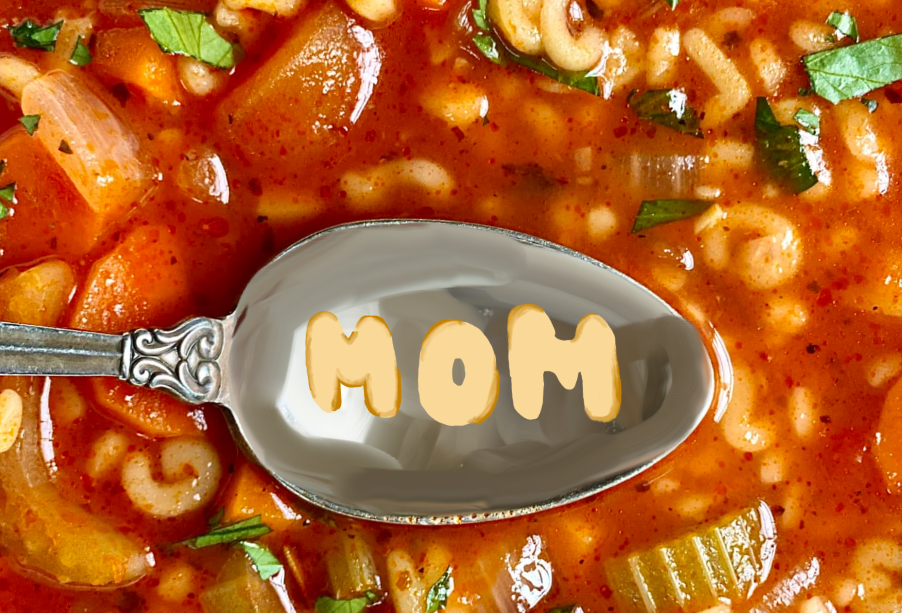In a small, sun-lit room filled with notebooks, a keyboard, and the hum of possibility, Evan Zuo crafts universes. These are not those physical worlds most of us experience but rather living, immersive soundscapes—where a flute whispers secrets, a piano carries emotions, and full stories are told without a single word. To Evan, music is not just an art form but also an act of discovery and a way of connecting. “Sometimes I have a melody in my mind, like a really short snippet of it,” Evan says. “Usually, sometimes it’s the beginning, sometimes it’s the end. That was the case for my Rosa Vita piece—I had the idea of writing this out-of-tune melody which was all I could think of at the time. I told my mom this is what my music is going to sound like in the end. She was so surprised and said, ‘Usually people think about the beginning, how the song starts.’”
Evan often starts with a climax. “I dragged that four seconds into four minutes,” he explains. “It was a totally different melody before, and I still remember it. I reuse some of the melodies in my future songs because I feel like it works.”
Composition is hardly a mechanical process for Evan—it’s an extremely personal and experimental one. When Evan gets home, he often finds himself sitting at the piano, trying out various interpretations of his music. Although he typically discards his drafts, there are times when he goes back to them and discovers numerous incomplete versions. “They’ll sound really weird because they weren’t the final version, but it’s fun to listen to what I originally thought the music was going to be like.”
Using tools like Logic Pro and a keyboard connected to the computer, Evan brings his ideas to life. “I record it on Voice Memo and then listen to it over and over. I don’t even need to write it down. I literally just listen once, get my keyboard, hook it up to my computer, and play it. Sometimes I’ll make the tempo different or the velocity of the notes different or later change it up,” he says. “Mostly, though in the beginning, it is always piano. Afterwards, I switch instruments.”
Lakeside was the first piece Evan composed with a keyboard, and it marked a turning point. “That piece was a mess,” Evan laughs. “I didn’t even have a melody in my head. I just sat there and started playing, and everything came. For whatever reason, I picked the instruments that worked, and it went. That piece took a week for me to make.”
Even through the toughest times, music has been a constant for Evan. When he moved to the United States in 2019, he remembers listening to Dvořák’s New World Symphony on repeat on his flight. “I listened to that when I came here,” he says. “Dvořák wrote the New World Symphony based on his trip to New York, so I thought it was kind of cool because I was also coming here for the first time. It helped me relax a lot.”
Evan’s creativity doesn’t stop at music. He is also a prolific writer and storyteller, crafting interactive ARGs (alternate reality games) and stories designed to test and intrigue his audience. “ARGs are like mysterious dramas with ciphers,” he explains. “I make my friends work through puzzles and interactive short stories on online websites. They’ll kind of understand the ending, but at the same time, they won’t really know. Only I know the real answer.”
When discussing his albums, Evan places an emphasis on storytelling and cohesion. “I consider my albums to be a story,” he says. Some friends of Evan believe each song must be a hit on an album, while according to him, a great album is not just a great collection of standout tracks but about binding them together in unexpected meaningful ways. “Everything has to connect in a way that’s unexpected,” he explains. “My first album turned into a story about my sophomore year of high school. I used melodies from previous pieces to tie it all together, like the end of a puzzle.”
But Evan doesn’t confine himself to music. His interest in bioengineering parallels his artistic ones. “I view the current world as having three pathways for human civilization to progress: physics, artificial intelligence, and biology. Biology is the most crucial, and it can’t be separated from technology. I want to help unlock human longevity,” he says. “It’s not fair that people die from things they shouldn’t, like cancer. I think about that a lot.”
Despite his ambitions in the field of STEM, music is still very much an essential part of Evan’s life. “I’ll never treat music as a job. It’s too fun,” he says. “Music is emotional healing, but science can heal physically. If a studio ever asked me to create music for a film, I’d gladly do it.
But it’s always going to be something I do for passion.” His creative philosophy, though, is much simpler: “I want people to interpret my music in their own way,” he states. “It’s like writing versus a television show. A book leaves room for imagination, while a TV show sets the scene for you. I want my music to leave room for people to feel and imagine on their own.”




